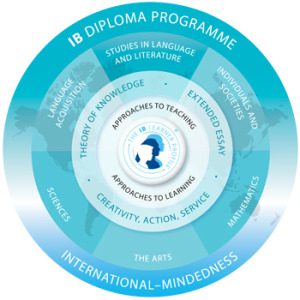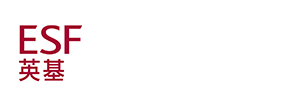Diploma Programme (DP)
The International Baccalaureate Diploma Programme (DP) is a course designed for students aged 16 to 19. Students can follow either the full Diploma Programme or their choice of individual Diploma Courses. The DP is widely recognised as the best possible preparation for study at university, building research skills, encouraging independent learning and promoting personal responsibility. Students are not ranked at Discovery College and there is a maximum of 20 students in any DP class.
 Curriculum Model
Curriculum Model
Full DP students take the core elements consisting of:
- Theory of Knowledge (ToK)
- Extended Essay (EE)
- Creativity, Action and Service (CAS)
Students also take one subject from each of the groups below, three at Higher Level (HL) and three at Standard Level (SL). Group 1: Studies in Language and Literature (Language A) Group 2: Language Acquisition (Language B or ab initio), or a second Language A Group 3: Individuals and Societies (Humanities) Group 4: Experimental Sciences Group 5: Mathematics Group 6: Arts (or a second Science, or a second Humanity, or a third language) It is possible to take two Arts subjects, but only if Environmental Systems and Societies is taken as the Group 3/4 subject. IB Diploma Courses students can take six subjects or less, and can do three or less at Higher Level. They can take Theory of Knowledge and do an Extended Essay if they wish. CAS is compulsory for all students at Discovery College.
Core Requirements
Theory of Knowledge (ToK)
In this interdisciplinary course, students explore the nature of knowledge across all disciplines. Critical thinking is encouraged by questioning assumptions and asking how certain we can be of different knowledge claims. The course promotes international mindedness by requiring an understanding of different cultural perspectives.
Extended Essay (EE)
Students have the opportunity to investigate a topic of individual interest. Through writing this 4,000 word essay, students develop the skills of independent research and academic writing that will prepare them very well for study at university level.
Creativity, Action and Service (CAS)
Students become involved in artistic pursuits, physical activity such as sport, and community service projects. This type of experiential learning fosters awareness and appreciation of life outside the academic arena. Students carry out and reflect on challenging activities that have real consequences, thus promoting personal responsibility.
Assessment
Students are assessed using a variety of methods, including examinations, essays, case studies, oral presentations, fieldwork, laboratory work, investigations and artistic performances. Some assessment tasks are marked externally by the IB, while others are internally assessed by teachers but externally moderated by the IB. All subjects are marked using the IB 1-7 scale, where 7 is the highest and 1 the lowest. Theory of Knowledge and the Extended Essay in combination are worth 3 points. The maximum score in the IB Diploma is therefore (6 subjects x 7 points) + 3 points = 45 points. The minimum possible score which can be awarded the IB Diploma is 24 points, though there are many possible failing conditions.
Learning Team Programme
In addition to the academic programme, students in Years 12 and 13 have one hour per week in Learning Teams which is devoted to CAS and Extended Essay preparation, work on Higher Education applications, and activities designed to develop life skills such as cooking, having a healthy lifestyle and making responsible decisions.
Further Information
For further information on the IB Diploma, see the IB website: www.ibo.org/diploma More information on the IB Diploma at Discovery College, see our Senior School Prospectus
Downloads
- Y12-13 Subject Selection 2023 – Slides
- Y12-13 Options Form 2022-24
- Senior School Prospectus
- DP General Regulations
- Assessment Calendar for the Class of 2024
- 2024 DC IBDP/CP Results (Provisional)
- DP Assessment Procedures (Class of 2024)
- School Profile 2022-23
Contact
Will Hurtado, IB Diploma Programme (DP) Coordinator will.hurtado@dc.edu.hk
